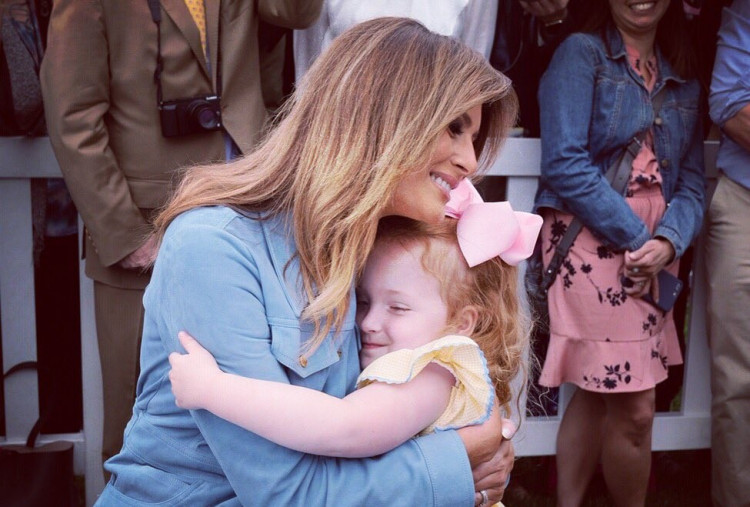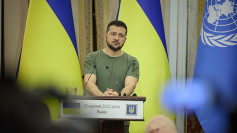In the light of the recent measles outbreak threat, the First Lady of the United States has stayed silent on her stand regarding the issue. She has declined comment, even as she celebrated the first year anniversary of her Be Best campaign that touts the safety and well-being of young children.
In a gathering at the White House Rose Garden for the Be Best occasion Tuesday, Melania spoke of her continuing work in the promotion among children of kindness, healthy living, as well as respect. She touched on her efforts, recounting her visits to children and mothers, and her expanding work that focuses on online safety and education on the dangers of drug abuse especially opioid use.
Despite the FLOTUS' avoidance of the current serious reports on 750 cases of measles spread out among 23 states in the U.S.A. between January and May of this year, the highest number since 1994, Dr. Francis Collins, the director of the National Institutes of Health, spoke of it at the gathering.
Dr. Collins addressed the pressing concern of measles, which had been deemed "eliminated" in 2000 by the US Centers for Disease Control and Prevention. He spoke of his stand as making an "important" as well as "timely point." He stressed that vaccines are a "highly safe" and "effective" means of controlling the spread of "measles" and other "infectious diseases."
He went on to say that if people wanted their children to "Be Best," then they should do what the President had urged "last week" and that was to have children "get their shots."
The First Lady has continued to stay silent on the concern in the light of Collins' pleas at the celebration. On the other hand, the President of the United States made a surprising turnaround in his stand regarding vaccines.
Prior to his election, the President had been outspoken regarding vaccines, even falsely claiming that autism was linked to childhood autism, even though studies have not been conclusive in finding this link. In 2015, during the Republican presidential debate, Trump spoke of "totally" favoring vaccines but in "smaller doses" for children "over a longer period."
However, in the light of the outbreak, he has significantly toned down his anti-vaccine sentiment. The President enjoined the American public late last month to "get the shots" because "vaccinations," he now stresses, are "so important" now that it is "going around."
CNN's Kate Andersen Brower who authored an article on the United States' First Women has pointed out that first ladies have long since used their "platforms" in order to bring attention to significant issues touching the health and well-being of children whether "physical or emotional."
She recounted the story of former first lady Barbara Bush who was captured in photographs holding a baby with AIDS. Brower pointed out that those images brought across to the public a very "powerful message." That was during a time when people were still scared and uninformed regarding the means by which HIV could be spread.
That picture sent the message that addressed the fears at the time that people could get AIDS by touching one who was HIV-infected.
Brower pointed out that "first ladies" do not need to "make a campaign" of "something." All it needed was to ensure that the press is at hand to catch crucial moments. The author believes that Melania also has the opportunity to make such a statement with vaccines and her Be Best campaign.
It was as "simple" she said as the First Lady stating her support of vaccines and "maybe" paying a visit to a doctor's clinic where vaccinations are being done.






